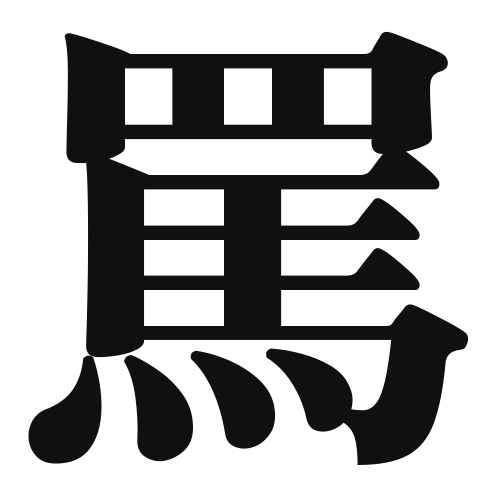1. Overview of Meaning
The kanji 罵 (ba) means “to scold” or “to insult.” It conveys a sense of verbal abuse or harsh criticism directed at someone.
2. Formation and Radical
Formation: The kanji 罵 is a phonetic compound (形声文字) that combines the radical for “words” (言) with a phonetic component that suggests its pronunciation.
Radical: The radical of 罵 is 言 (gen), which relates to speech or language, indicating that the kanji is associated with verbal expression.
3. Examples of Usage
Common Words and Phrases:
- 罵倒 (ばとう, batou) – verbal abuse
- 罵声 (ばせい, basei) – insulting voice or jeers
Example Sentences:
- 彼は私を罵ったが、私は気にしなかった。
(He insulted me, but I didn’t care.) - 罵倒するのは良くない。
(It’s not good to verbally abuse others.)
4. Synonyms and Antonyms
Synonyms:
- 非難 (ひなん, hinan) – criticism (more general, not necessarily harsh)
- 侮辱 (ぶじょく, bujoku) – insult (more formal)
Antonyms:
- 称賛 (しょうさん, shousan) – praise
- 賞賛 (しょうさん, shousan) – admiration
5. Cultural and Historical Background
Relation to Japanese Culture: The use of 罵 reflects the importance of language in Japanese culture, where words can carry significant weight in social interactions.
Proverbs and Idioms: There are various expressions in Japanese that caution against harsh words, emphasizing the value of kindness and respect in communication.
